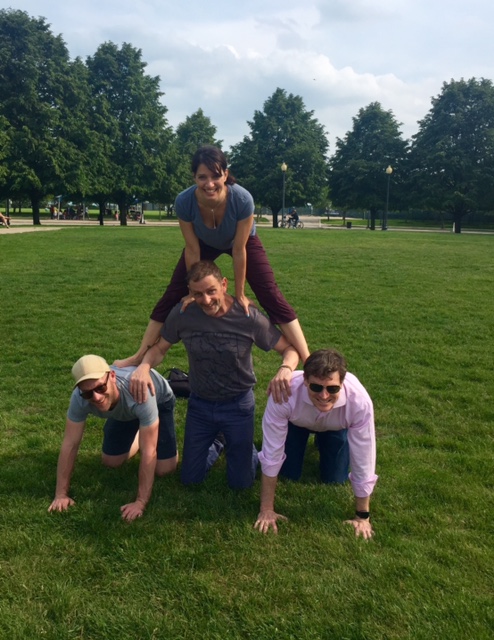
There are natural ways to calm your anxious heart — no medication necessary!
There you are having normal day when suddenly you start to notice your body taking over. Your heartbeat begins to quicken. Your breathing gets short and tight. You feel a little tingly and fluttery inside, but not in a good way. Your thoughts are racing. And then you realize: “I’m anxious!”
At this point, you start going down a mental rabbit hole of inquiry, frustration and fear…
You want to know why you’re anxious. Nothing specific happened to trigger you and in reality, nothing is wrong. But your body is telling you a different story — a story you don’t want to feel into because it’s so darn uncomfortable!
By now, you’re deep in your head about it all, yet your body is continuing its alarm system.
An anxious heart equals an anxious mind.
In order to slow your heart and mind down, so you can function at your optimal level, you need to include both your mind and body in the process.
Of course, there are medicinal options that may help, but if want something that comes from the inside out (and is accessible all the time!) here you go:
- Re-label it: Labeling your anxiety as “anxiety” is honest and helpful initially. However, once you know what it is, consider calling your anxiety by another name that has less heaviness and upset to it. In essence, you’re changing how you relate to your anxiety by re-labeling it. For example, if you name your anxiety as “Sally” or “Old Friend” or even “Butterflies” it has more of a familiar, less intimidating connotation, thus easing its heavy grip on your heart and your whole body.
- Observe your experience: Without judging the feeling as “good” or “bad” or “I don’t like this” try practicing a non-judgmental, mindful observation of your experience. By moving from being “in it” to observing it, you switch on a different part of your brain and you shift the experience. Use your curiosity to guide you. For example, ask yourself questions such as: what does the sensation feel like? where do I feel it? what color is it? what shape? texture? temperature? what does it remind me of? what is my body wanting me to know?
- Let it be what it is: Instead of trying to change it, let your anxiety be. The act of trying to push against what is, is what leads to more of it, because what you resist persists. It’s hard not to fight against it, but if you can lean into the discomfort of the experience, it often releases its painful grip more readily.
- Take long exhales: Longer exhales signal your body into a relaxation state (versus an activated state). Play with doubling the length of your exhale, so if you inhale for 4 counts try doing a slow exhale over 8 counts. Even if you don’t make it all the way to doubling, the slow exhales will slow your anxious heart and ultimately your anxiety. For an extra benefit, while practicing this breathing technique, try putting your hands on your belly or ribcage to tactically feel your breath. This helps bridge your mind and body, which helps with alleviating an anxious state of being.
- This too shall pass: Remind yourself that no matter how horrible you feel and no matter how fast your heart is pounding, nothing lasts for ever and this experience will pass. Often, it’s the fear that the anxiety will never go away that amplifies the experience. Just like everything else in life, it’s not a permanent state. I suggest you say to yourself, “It will feel different later” or “This too shall pass.”
- Say “Thank You” to your body: Bring your hands to your heart and send your body a mental message of love and appreciation. Your body is trying to do its job in protecting you from perceived threats of discomfort, danger or pain. So, your body may be a quicker on the gas pedal than you’d like right now, but it’s actually looking out for you. Instead of alienating your body by sending it messages of anger, try thanking it instead. Befriending your body during anxiety may sound bizarre, but making it an enemy is sure to backfire.
It’s not your fault if you feel your anxious heart beating and your body going into warning mode — it’s actually an opportunity to reconnect with yourself and get present.
P.S. Seeking more MindBodyWise tips to alleviate your symptoms of anxiety? Check out: this post, this post, and this post. Or go here and use the search bar to explore topics of interest.






